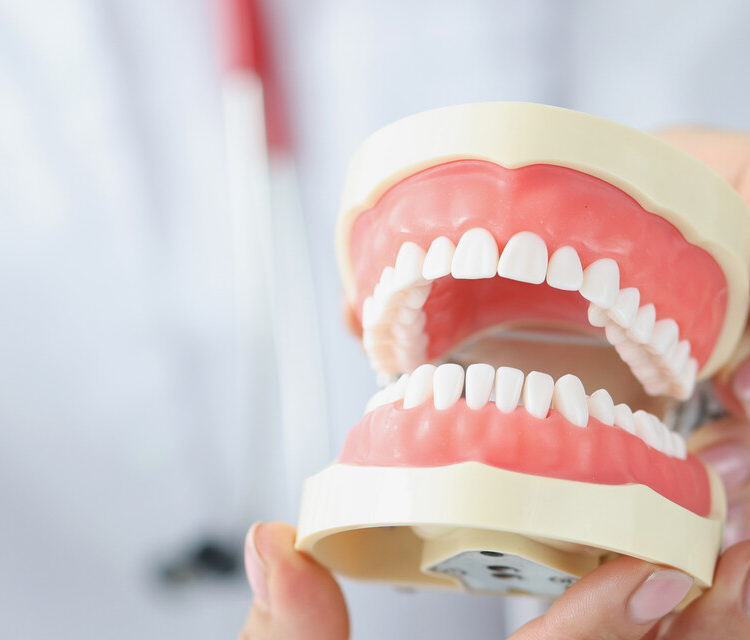Dentures that can’t be beat in Hackettstown.

Dentures that can’t be beat in Hackettstown.
Types of dentures.


Reasons someone might need a denture.
- Ntooth decay
- Nperiodontal disease
- Ngingivitis
- Ntooth loss from an injury
- Neeth that need to be removed due to crowding or other dental issues.
Cost of dentures.
It will also depend on whether your dental insurance has denture coverage. If it does, dentures may be covered in part or in full depending on your plan.
If you are curious as to whether a denture would be covered for you, our friendly front desk team would be happy to look into that for you.
The denture process
Once it has been decided that dentures are the best option, the next step is to have any remaining teeth removed.
01
The first step
02
Conventional denture
03
Immediate denture
Using an immediate denture means that there is no healing period required between extraction of teeth and denture placement. However, as these dentures rest on soft tissues, they may cause some irritation until those tissues have healed over time. In the case of an immediate denture, you will have impressions taken of your mouth prior to having the teeth removed. This allows for the dentures to be ready for you to use as soon as your teeth are removed.
Aftercare for dentures
You should also soak your dentures nightly in either water or a denture-soaking solution to keep them from drying out and to remove any remaining plaque. Be sure to handle them with care as they can break if dropped.
It is also important to visit your dentist regularly to have your dentures checked and cleaned.
Frequently Asked Questions
Will dentures feel uncomfortable?
Do dentures need to be removed?
Can I eat with dentures?
How often do dentures need to be replaced?
How can I tell if my denture needs to be replaced?
If you have any other questions about dentures or would like to schedule an appointment, please call us at (908) 852-8858.
Listen to Dr. V
New Year’s Dental Resolutions
As we ring in the new year, it's the perfect time to set fresh goals and intentions, not just for our general health and well-being, but specifically for our dental health too. "New Year’s Dental Resolutions" is an insightful article that emphasizes the importance of incorporating dental care into our
WRNJ Radio Topic: Everything you want to know about Dental Implants
In case you missed it, Dr. Vander Vliet was on 📻 WRNJ radio this past Friday 6/10 🗓 talking about dental implants🦷. He discussed the entire process of getting an implant and what the benefits are 👍. If you or someone you know needs dental implants, please give
The Oral – Systemic Connection – Can good oral hygiene save and extend your life?
Overall Health starts in the mouth. The mouth is a portal to your body and a portal to a healthy life.
The High Tech Dentists
The office of Dr. Vander Vliet Advanced Dental Care have always utilized the latest technology in providing superior dental care to our patients.
Will Going to the Dentist Benefit Me In Fighting Off COVID-19
Periodontal disease is a risk factor (co-morbidity) for COVID-19 illness. The mouth is the portal to your body and the portal to a healthy life. In a study conducted by a team of international scientists found that patients who have been Hospitalized with COVID-19 were more likely to die of
Why You Shouldn’t Delay Visiting the Dentist During a Pandemic
#1 Question: Is the Dental Office Safe? Dentists are accustomed to constantly be thinking about infectious-disease risk. As novel as the Coronavirus pandemic is to the world, it is not the first time dentists have had to manage disease control. Examples include hepatitis B and the AIDS pandemic in the
Home Remedies for Minor Dental Emergencies
If you are experiencing severe pain or swelling, you should call your dentist. Here are some tips for more minor problems: If you have a broken tooth that is painful or has a rough edge, you can use a product called “Dentemp” which is available at your local pharmacy This
Five Tips Every Parent Should Know about their Children’s Dental Health
Many of our patients are under the assumption that we do not treat children which could not be farther from the truth. Dr. Vander Vliet and our hygienists are wonderful with kids, and we welcome them into our practice. So if you are thinking about scheduling an appointment for your
Do It Yourself Orthodontics
Recently, mail order braces and at-home teeth aligner kits have become very popular. They seem appealing, as they are advertised as affordable and convenient. While at-home kits might seem like an ideal solution to a busy lifestyle, they are NOT the miracle fix that they seem to be on social
12 Dental Tips for the Holidays
1. Brush your teeth at least twice a day. Carol while you clean: for two minutes each time. The average person brushes for only 30 seconds. 2. Floss at least once a day. If you don’t floss, you are not cleaning 35% of your teeth surfaces. 3. Avoid those candy
Contact
Dr. Gary Vander Vliet
Dr. K Dermoumi
Preventive, Cosmetic and Implant Dentistry
office@gvdental.com
Call us
908-852-8858
Address
Hastings Commons, Building 2B;
486 Schooley’s Mountain Road;
Hackettstown, New Jersey 07840
Office hours
Monday 8:00AM – 5:00PM
Tuesday 8:00AM – 5:00PM
Wednesday 8:00AM – 5:00PM
Thursday 8:00AM – 5:00PM

